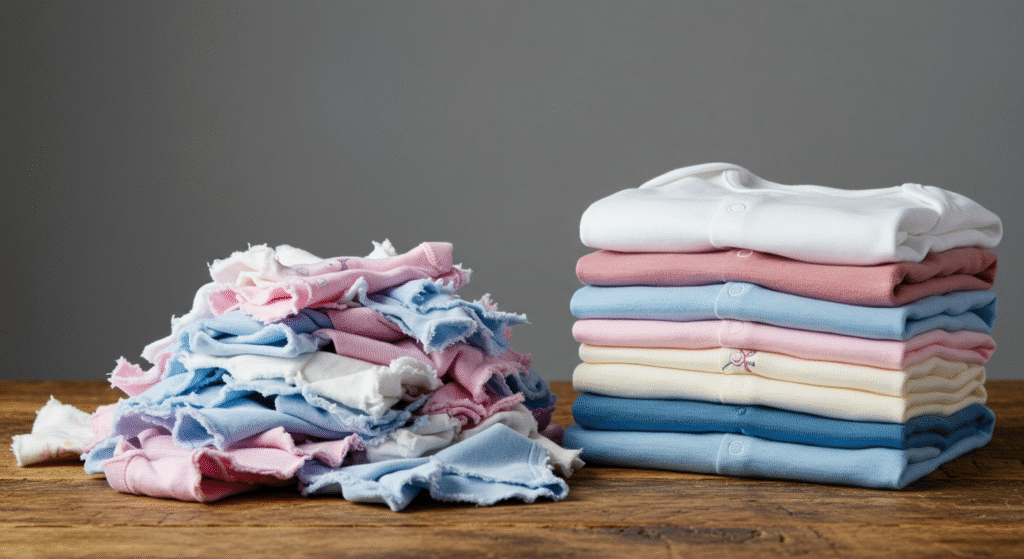We were gone for just three days. A short family getaway—our first since the baby was born. I left everything in order: bottles labeled, clothes folded, instructions printed. My mother-in-law, Linda, had offered to stay behind and watch the house. She insisted it would be “no trouble at all.”
When we returned, I noticed it immediately. The nursery felt… off.
The drawers were too neat. The laundry basket was empty. And then I saw it—my baby’s favorite onesie, the one with the little fox print, torn in half and stuffed into the trash.
I opened the closet. Half the clothes were gone. Replaced with stiff, unfamiliar outfits—button-downs, tiny slacks, pastel dresses with lace collars. Not the soft cotton onesies I’d carefully chosen. Not the cozy sleepers my baby loved.
I called Linda into the room. “Where are his clothes?”
She didn’t flinch. “I got rid of them,” she said calmly. “They weren’t appropriate.”
I stared at her. “What do you mean?”
She folded her arms. “Babies should look presentable. Not like they’re wearing pajamas all day. I bought new ones. Better ones.”
I felt my throat tighten. “You shredded his clothes?”
She nodded. “I didn’t think you’d mind. You’re overwhelmed. I was helping.”

Helping.
I wanted to scream. But I didn’t. I just picked up the torn onesie and held it like a wound.
Later that night, I sat with my husband, trying to make sense of it. He was stunned. Angry. But also conflicted. Linda had always been controlling, but this crossed a line.
The next morning, I confronted her again. This time, I asked why. Not just what she did—but why she felt entitled to do it.
Her answer stunned me.
“When I had my first child,” she said quietly, “I was alone. My husband was working overseas. My mother criticized everything I did. I felt like a failure. I swore that when my children had kids, I’d make sure they didn’t feel judged. But then I saw the clothes. The mess. The exhaustion in your face. And I panicked. I thought I was helping. I thought I was fixing what I couldn’t fix back then.”
Her voice cracked. “I didn’t mean to hurt you. I just didn’t know how else to show I care.”
I didn’t forgive her right away. Some wounds need time. But I saw something in her I hadn’t seen before—not control, but fear. Not judgment, but unresolved pain.
We set boundaries. Clear ones. She apologized. She offered to replace the clothes, but I told her that wasn’t the point.
The point was trust.
And slowly, we began to rebuild it.
Now, when she visits, she asks before doing anything. She listens. She holds her grandson with gentleness, not authority. And sometimes, when she thinks I’m not looking, she folds his laundry with tears in her eyes.
Because love isn’t always graceful. Sometimes it shows up in broken ways. But when we choose to face it, to name it, to heal it—we give our children something better than perfection.
We give them truth.



